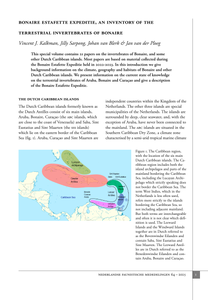Higher Education Institutions (HEIs) are dedicated to the professionalization of human capital; to accomplish this, the link with the productive sector is an active component that must be strengthened through formal mechanisms. The purpose of this paper is to estimate the relationships and effects from the Institutional Framework (IF), as well as from the independent variables in the context of linking HEI with the industrial sector. Survey data were collected from 47 HEIs in the Northwest of Mexico; a mixed research approach was applied and analyzed through the partial least-squares structural equations modeling (PLS-SEM) technique. Although the IF is identified as a relevant aspect for the model, this is not a problem for Mexican HEIs, since the analysis reflects a solid legal framework regarding the common basic levels and research. The main impact for experts who carry out research activities is that the route to creating, maintaining, and promoting integrated academic, technical, and administrative personnel as a specialized work team is not achieved. The main factor that does not contribute for researchers who carry out research activities is that the route to integrating (creating-maintaining-promoting) academic, technical, and administrative personnel as a specialized work team is not achieved. One finding is that the informants agree with the existing stimuli that are not aimed at research linked to the industrial sector and problem-solving through applied research. There is a need for retaining the groups of researchers to help make the benefits for the industry clear by offering advanced linkage levels.
DOCUMENT
Mexican oregano is a non-timber forest product harvested in natural vegetation and represents an important source of income for rural families. Recent reports have highlighted decreases in natural populations caused by increased harvest intensity. Oregano leaf harvesting is a complex problem, involving different components and views, and has a clear spatial dimension. We proposed an analytical framework based on multi-criteria-multi-objective analyses. GIS tools were used as the platform for managing, displaying and analyzing ecological and socioeconomic information from different sources in order to evaluate land suitability of three different management strategies for two competing land objectives: oregano Harvest and oregano Regeneration. The incorporation of environmental evaluation criteria in the analysis allowed the identification of new potential oregano harvesting areas which were neither reported by harvesters, nor registered during harvesting trips. Socio-economic criteria, such as land tenure, highlighted the fact that a substantial proportion of current oregano harvesting areas are located outside ejido limits resulting in potential conflicts for resource access. The proposed Balanced oregano management strategy, in which the same proportion of suitable area (50%) was assigned to both objectives, represents the most favorable management strategy. This option allows harvesters to continue earning an income from oregano leaf harvest; and at the same time helps in the selection of the best areas for oregano regeneration. It also represents a management strategy with a smaller impact on oregano populations and on the harvesters ́ income, as well as lower monitoring costs. The proposed analytical frame-work may contribute to advance the application of systematic approaches for solving decision-making problems in areas where oregano leaves and other NTFP are harvested.
DOCUMENT

This special volume contains 21 papers on the invertebrates of Bonaire, and someother Dutch Caribbean islands. Most papers are based on material collected during the Bonaire Estafette Expeditie held in 2022-2023. In this introduction we give background information on the climate, geography and habitats of Bonaire and other Dutch Caribbean islands. We present information on the current state of knowledge on the terrestrial invertebrates of Aruba, Bonaire and Curaçao and give a description of the Bonaire Estafette Expeditie.
DOCUMENT

tract Micro wind turbines can be structurally integrated on top of the solid base of noise barriers near highways. A number of performance factors were assessed with holistic experiments in wind tunnel and in the field. The wind turbines underperformed when exposed in yawed flow conditions. The theoretical cosθ theories for yaw misalignment did not always predict power correctly. Inverter losses turned out to be crucial especially in standby mode. Combination of standby losses with yawed flow losses and low wind speed regime may even result in a net power consuming turbine. The micro wind turbine control system for maintaining optimal power production underperformed in the field when comparing tip speed ratios and performance coefficients with the values recorded in the wind tunnel. The turbine was idling between 20%–30% of time as it was assessed for sites with annual average wind speeds of three to five meters per second without any power production. Finally, the field test analysis showed that inadequate yaw response could potentially lead to 18% of the losses, the inverter related losses to 8%, and control related losses to 33%. The totalized loss led to a 48% efficiency drop when compared with the ideal power production measured before the inverter. Micro wind turbine’s performance has room for optimization for application in turbulent wind conditions on top of noise barriers. https://doi.org/10.3390/en14051288
DOCUMENT

Global society is confronted with various challenges: climate change should be mitigated, and society should adapt to the impacts of climate change, resources will become scarcer and hence resources should be used more efficiently and recovered after use, the growing world population and its growing wealth create unprecedented emissions of pollutants, threatening public health, wildlife and biodiversity. This paper provides an overview of the challenges and risks for sewage systems, next to some opportunities and chances that these developments pose. Some of the challenges are emerging from climate change and resource scarcity, others come from the challenges emerging from stricter regulation of emissions. It also presents risks and threats from within the system, next to external influences which may affect the surroundings of the sewage systems. It finally reflects on barriers to respond to these challenges. http://dx.doi.org/10.13044/j.sdewes.d6.0231 LinkedIn: https://www.linkedin.com/in/sabineeijlander/ https://www.linkedin.com/in/karel-mulder-163aa96/
MULTIFILE
